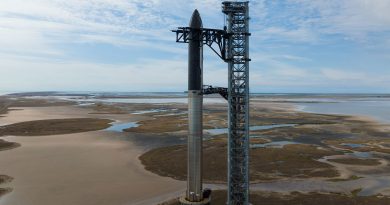Thai govt loans to cushion blow of Trump tariffs

The Government Savings Bank (GSB) has been ordered to provide 200 billion baht in soft loans to support Thai entrepreneurs hit by US President Donald Trump’s tariff measures.
According to Finance Minister Pichai Chunhavajira, the GSB loans will charge an interest rate as low as 0.01%, while the bank’s cost of funds is around 2%. The government will bear the interest rate differential in order to support the liquidity and inventory carrying costs of domestic entrepreneurs, particularly for small and medium-sized enterprises (SMEs), during this current period of uncertainty.
For large companies, commercial banks will step in to help them. But if the burden exceeds commercial banks’ capacity then the government will assist, said Mr Pichai.
He also addressed measures to prevent the subrogation of certificates of origin (COs) for exporting goods to America, saying it is still unclear what percentage of local content the US will require for products exported to its market.
However, it is expected to be higher than the current level of 40%, with the new requirement possibly rising to 60%, 70%, or even 80%, said Mr Pichai He added that for calculating local content for goods exported to the US, America will count domestic raw materials, including those sourced from the US and its allies, as part of efforts to manage competition with rival countries.
According to Mr Pichai, in the first round of negotiations with the US regarding market access, which aims at allowing American goods to enter the Thai market at a 0% or near-zero import tariff, Thailand proposed eliminating import duties on 69% of all imported goods from the US.
Later, Thailand pledged to eliminate import duties on up to 90% of all goods imported from the US and to remove various non-tariff barriers.
Once a final agreement is reached on the tariff negotiations with the US, the entire agreement must be submitted to the Thai House of Representatives for approval, Mr Pichai said.
He also noted that certain US goods which are not currently imported into Thailand will also be allowed to enter at a 0% tariff rate, in order to further expand market access and open up the Thai market to US automobiles.
Mr Pichai said the guiding principle in the negotiations is that a 0% import tariff for US goods should apply only to products that Thailand already needs to import or to those that can be produced domestically but in insufficient quantities.
“The impact of the Trump tariff measures should be seen as a crisis that presents an opportunity for Thailand to adapt and enhance the country’s competitiveness,” he said. “This is a bitter medicine for every country: we need to understand the situation and move in the same direction. We can’t expect to gain 100% because it’s a zero-sum game.”
He added that Thailand’s economy relies heavily on exports — up to 58%, though this is down from a previous peak of 70%. Of that, 18% of Thai exports go to the US, which is relatively high.
Mr Pichai emphasised that negotiations with the US must ensure mutual benefit and balance, and the outcome must be sustainable — not just short-term fixes. This, he noted, is a challenging task.
Historically, the US has had a trade deficit with Thailand amounting to US$30 billion a year. Therefore, Thailand must open up its market to more US products. Nevertheless, of that $30-billion deficit, one-third consists of electronic goods such as notebook computers, most of which are produced in Thailand by US companies with manufacturing bases in the country.
According to Mr Pichai, these US companies have been operating in Thailand for 20-30 years, due to the availability of skilled labour that cannot easily be replaced in the US, as well as the presence of extensive supply chains. Relocating production out of Thailand would be nearly impossible. Products exported by these US firms in Thailand are often components used in America’s artificial intelligence industry, he said.
At the same time, according to Mr Pichai, Thailand is committed to promoting Thai investment in the US, especially in sectors such as agricultural processing, including both human and animal food, along with investment in energy resource development. The US has relatively low energy costs, particularly natural gas, which is priced at just $2–$3 per million British thermal units (BTU), compared to $11 in the international market.
He added that Thailand must adapt by increasing reliance on its domestic economy. This includes maximising the use of domestic resources in production for overseas sales and diversifying export markets.
However, Mr Pichai cautioned that if the negotiations adversely affect third countries, Thailand must take that into consideration as well, since part of these negotiations involves geopolitical issues, and the country does not wish to bring foreign conflict into its own borders.
Source – Bangkok News



